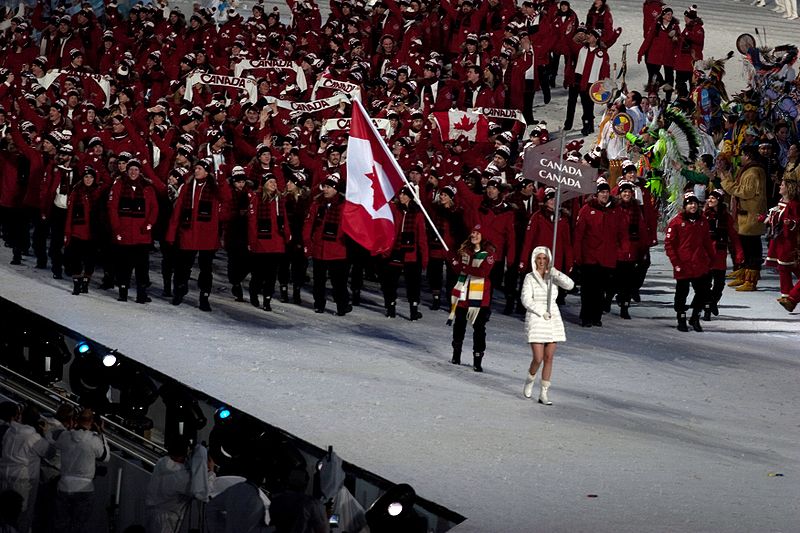How Canadian Athletes Are Making A Difference
 Often acknowledged for achievements in their particular area of expertise, athletes are, ordinarily, the most recognized people in the world. Consequently, it is significant when athletes use their status to bring attention to global issues as well as transform lives in their communities. Here are three Canadian athletes who make a difference.
Often acknowledged for achievements in their particular area of expertise, athletes are, ordinarily, the most recognized people in the world. Consequently, it is significant when athletes use their status to bring attention to global issues as well as transform lives in their communities. Here are three Canadian athletes who make a difference.
Clara Hughes
This dual-season Olympian is the only athlete in history to win multiple medals at both the summer and winter Olympic Games. As a cyclist, Hughes competed in the 1996 Olympic Games where she earned bronze in both the road race and time trial. She also finished sixth in the time trial in Sydney. In 2002, she returned to her first sport, long track speed skating and won a bronze medal in the 500m in Salt Lake City.
A documentary about Right to Play’s work in Uganda inspired Hughes to donate $10,000 from her personal savings to their programs. By encouraging other Canadians to donate to this international humanitarian organization, Hughes helped raise more than half a million dollars. In Uganda, more than a third of all inhabitants live below the poverty line, including children, the primary victims of this economic situation. Frequently, their families cannot ensure their health or well-being particularly in remote regions of the country.
Following her win in Vancouver 2010, Hughes donated $10,000 to Take a Hike, an adventure-based education that offers at-risk youth a better chance at life. The program supports hundreds of young people in altering their lives by combining academics with outdoor activities, in addition to therapy and community volunteering.
Currently the national spokesperson for Bell’s Let’s Talk Day, Hughes created Clara’s Big Ride which focuses on raising awareness of mental health issues throughout Canada.
Steve Nash
Canadian professional basketball player Steve Nash plays for the Los Angeles Lakers. As an eight-time NBA All-Star and two-time recipient of the NBA Most Valuable Player Award, Nash led the league in assists five times.
The Steve Nash Foundation, started by Nash and his family in 2001, devoted its time to assisting underserved children on a global level. The heart of their aid organization was a focus on education, enjoyment of life, health and personal development. The Nash Foundation operates as two separate private establishments: a registered Canadian charity in Victoria, British Columbia, and a U.S. charity headquartered in Arizona. Through the foundation’s platform, Nash works to increase access to critical resources and provide a basis for health and strength in communities across Canada, Paraguay, Uganda and the U.S.
The infant mortality rate in Paraguay is four times that of the U.S. While Paraguay’s hospitals treat thousands of children, they still lack access to equipment and training which has a devastating effect on health. The war in Uganda prompted Nash to co-found Football for Good, a nonprofit business that opened a Centre for Sport and Rehabilitation in northern Uganda. Nash hoped that the center would create a sense of optimism for the children caught in the chaos. The center offers sports, arts and drama programs besides counseling for children and adults affected by war.
Hayley Wickenheiser
Hayley Wickenheiser, a five-time Olympic medalist, is an award winner, community leader, history-maker and mentor. Selected at 15 years old for the Canadian Women’s National Team, Wickenheiser is considered one of the best female hockey players in the world. Wickenheiser led the squad to six gold and one silver medal at the 1998 Winter Olympics. Furthermore, she won four Olympic gold medals during the 2002, 2006, 2010 and 2014 Winter Olympics. As the first female hockey player to score a point in a men’s professional game, Wickenheiser made history.
A passion for sports matched with a desire to make a difference, Wickenheiser works with organizations such as Project North and Right to Play. Project North is a not-for-profit dedicated to improving the lives of children in northern Canada. The vision is to create recreational opportunities for Inuit children living in remote Canadian communities, providing stimulating experiences rooted in play, sport and education.
In 2007, a team of Canadian Olympic athletes, alongside Wickenheiser, traveled to Rwanda for Right to Play and on a related mission to Ghana, returned to Africa in 2011. Right to Play allows children to rise above the challenges of child labor, early marriage, inequality, illiteracy and violence. Their mission is to encourage children to rise above adversity through the power of sport, games, creative and free play. Right to Play believes that staying in school teaches children dignity, respect and empowerment.
Athletes are fortunate to have an opportunity to do what they love for a living. Nevertheless, many children, as well as adults, admire athletes who set an example on how to pay it forward on a global level. These three Canadian athletes are making a difference by their efforts to create a better existence for children around the world.
– Colette Sherrington
Photo: Wikimedia Commons
